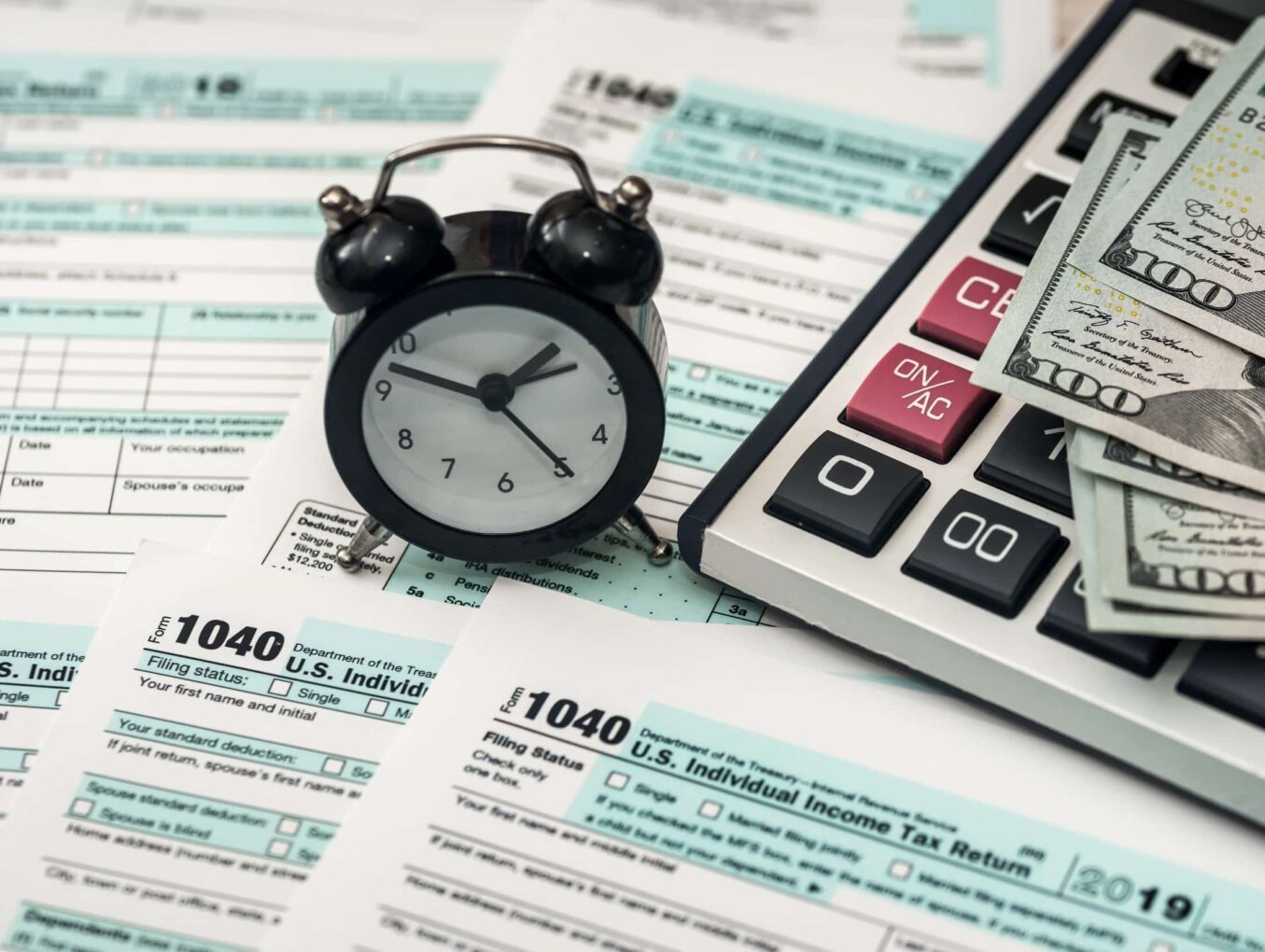Will the IRS Agree to Settle My Tax Debt for Less Than What I Owe?
In some cases, yes. The IRS will work with taxpayers to settle unpaid taxes with one of its tax debt relief programs, including an Offer in Compromise repayment plan.
If you cannot pay your full tax debt due to financial hardship, you can request an OIC to reduce your tax liability with the IRS. Once you submit form 656 and a 433 collection information statement, they will review your income, assets, and expenses to determine your ability to pay the total taxes you owe and whether to accept an “offer” amount that is less than what you owe.
Does the IRS Continue to Add Penalties and Interest to Back Taxes Until I Pay the Full Amount I Owe?
Yes, the IRS charges penalties and interest on a tax debt until it is paid in full. Even if a taxpayer is on an IRS payment plan (installment agreement) and makes monthly payments to pay off a tax debt, the IRS will continue adding interest.
In most cases, penalties are added when returns are filed late and/or for late payments. Taxpayers penalized for owing back taxes will receive an IRS penalty notice by mail explaining the reasons for the additional fees as well as how much interest will be added.
Can I Request Penalty Relief to Lower My Back Taxes?
Yes, but only if you attempted to pay off a tax debt and unexpected circumstances suddenly prevented you from paying.
When you request penalty relief from the IRS to remove or reduce a penalty amount, you may qualify for one of three penalty relief programs: Reasonable Cause, Statutory Exception, or First Time Penalty Abatement.
Will the IRS Keep My Refund to Offset Unpaid Taxes?
Yes, the IRS will apply refunds to unpaid taxes until a tax debt is paid in full. This happens even when a taxpayer is making monthly installment payments to resolve a tax debt.
Bottom line, if the IRS owes you a refund, but you owe the IRS taxes, don’t expect a refund until after you settle your tax debt.
Can the IRS Take My Paycheck or Pension and Retirement Funds If I Owe Back Taxes?
Yes, the IRS can use a levy to garnish part of your wages or take money from your retirement for unpaid taxes. Although most creditors cannot touch pensions and other retirement income, the IRS can levy 401Ks and IRAs if you owe back taxes.
The IRS will mail multiple tax balance due notices and a final notice of intent to levy before taking money from your paycheck or retirement. In most cases, you will have 30 days to pay what you owe the IRS or dispute your tax liability before the levy begins.
Will I Still Receive My Social Security Benefits and/or Disability Payments If I Have IRS Tax Debt?
Yes, you can still receive Social Security and disability when you owe the IRS. They can garnish a portion of your monthly benefits but not the full payment. For Social Security benefits, the most the IRS can take is 15%.
Just like with Social Security payments, the IRS can also garnish up to 15% of your disability income (SSDI) payments. However, Supplemental Security Income (SSI), a program that makes payments to temporarily disabled and low-income individuals, cannot be touched by the IRS.
Can the IRS Stop My Unemployment Benefits or Welfare Assistance Payments If I Have Unpaid Taxes?
Generally, the IRS won’t garnish unemployment benefits or welfare payments to resolve unpaid federal taxes.
Some states, however, may garnish part of someone’s unemployment benefits if they owe state taxes. For example, California can legally reduce your unemployment checks to pay off your state tax debts.
Will the IRS Seize My House If I Owe Tax Debt? Can I Buy a New House?
In most cases, the IRS seizes homes only if the taxpayer has committed egregious acts, such as hiding assets from the IRS to avoid paying taxes, intentionally committing tax fraud, or taking part in employee payroll or paycheck schemes.
Note that since 2018, tax liens no longer affect credit scores. However, buying a new house when you have a lien may be more difficult.
Some lenders are less likely to approve new mortgages or home loans; others will limit you to a specific type of loan or give you a smaller amount than what you otherwise qualify for. And still others may ask the IRS for priority when they must collect monthly loan payments.
Can the IRS Revoke My Passport for Unpaid Taxes?
Yes, your passport can be revoked when your unpaid taxes are seriously delinquent, and you owe more than $59,000 in back taxes to the IRS. They will mail a notice of intent to revoke your passport before contacting the U.S. State Department.
Since the State Department does not always inform delinquent taxpayers that their passport is invalid, a letter of intent to revoke a passport from the IRS shouldn’t ever be ignored.
If the IRS Suspends Tax Debt Notices, Does This Mean I Don’t Have to Pay or Worry About a Tax Lien or Levy?
No, you are always responsible for paying back taxes even when the IRS suspends notices because they are understaffed and backlogged. Just because you don’t receive a balance due notice or notice of intent to levy, it doesn’t mean the IRS has forgiven your tax debt.
Whether you have a tax notice or not, you risk an IRS tax lien, wage garnishment, bank account levy or more when you don’t settle your tax debt.
Need more help? You can start online by answering 6 simple questions. You can also call us at 866-568-4593.
6 Simple Questions. Free Evaluation.
Join our Newsletter
Enter your email address to join our free newsletter. Get all the latest news and updates.

